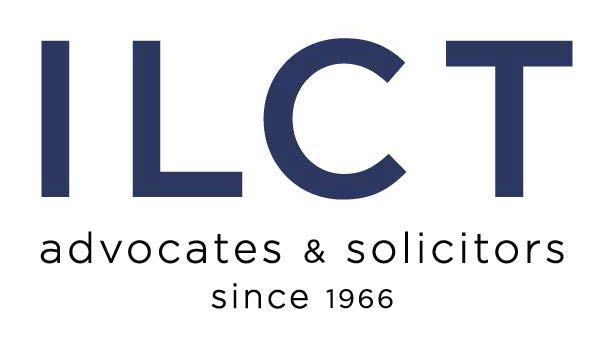Thailand’s Financial Business Hub Bill: A Transformative Step for Foreign Investment
Thailand’s Financial Business Hub Bill: A Transformative Step for Foreign Investment
Strengthening Thailand’s Position as a Financial Hub
Thailand has long been a pivotal economic center in Southeast Asia, leveraging its strategic location, infrastructure, and skilled workforce to attract foreign capital. To stay competitive on the global stage, the Thai Cabinet approved the Financial Business Hub Bill on February 4, 2025. This legislative initiative aims to modernize investment regulations and solidify Thailand’s reputation as a premier financial hub.
Currently under review by the Council of State, the proposal will return to the Cabinet before proceeding to parliamentary approval. Once enacted, the new framework will align with global best practices, fostering long-term stability and investor confidence. By reducing regulatory uncertainty and enhancing transparency, this reform underscores Thailand’s commitment to strengthening its role in the regional financial landscape.
The Role of the One-Stop Authority (OSA)
A key pillar of this reform is the establishment of the One-Stop Authority (OSA), a centralized body designed to streamline licensing and regulatory processes. Tasked with overseeing compliance and facilitating operations for financial service providers, the OSA will play a crucial role in simplifying approval procedures.
Notably, the OSA will handle licensing for cryptocurrency exchanges, blockchain enterprises, and digital wallet providers in alignment with Thailand’s Digital Asset Act. By standardizing these processes, the bill enhances regulatory transparency, positioning Thailand as a strong competitor to established financial hubs like Singapore and Hong Kong. The OSA’s efficiency-focused framework aims to eliminate bureaucratic obstacles, making it easier for both local and international firms to navigate compliance requirements. A clearer regulatory structure is expected to attract institutional investors and multinational corporations looking to expand their presence in Thailand.
Incentives and Economic Impact
To attract foreign investment, the bill introduces a range of incentives, including competitive tax rates, exemptions from key provisions of the Foreign Business Act, relaxed foreign ownership restrictions for commercial and residential properties, and simplified visa and work permit procedures for foreign professionals.
These measures are expected to boost foreign direct investment (FDI), particularly in sectors such as fintech, blockchain, and investment banking. The regulatory overhaul will impact multiple financial sectors, including banking, insurance, securities trading, and digital finance. By encouraging fintech and blockchain innovation while ensuring compliance with anti-money laundering (AML) and data security regulations, the initiative strengthens Thailand’s credibility as a regional financial hub.
A more investment-friendly regulatory environment is likely to drive competition, diversify financial products, and accelerate economic modernization. Additionally, supportive policies will encourage corporate expansion, further integrating Thailand into ASEAN’s economic network and broadening the scope of its financial services industry.
Future Prospects and Strategic Considerations
With a strong emphasis on regulatory efficiency, the Financial Business Hub Bill represents a transformative step toward establishing Thailand as a major financial center. The framework is designed to facilitate knowledge transfer, talent development, and cross-border investment, benefiting both local and international enterprises.
Clearer legal protections will also enhance investor security, ensuring that Thailand meets global expectations in financial governance and corporate accountability. The expected influx of foreign financial firms is likely to create a ripple effect, benefiting industries such as legal, consulting, and technology services.
As implementation nears, investors and businesses should closely monitor upcoming changes and position themselves to capitalize on Thailand’s evolving financial landscape. This reform is more than a regulatory update—it marks a strategic shift toward solidifying Thailand’s role in finance, innovation, and investment opportunities.
Companies looking to expand in Southeast Asia should consider Thailand’s newly structured financial regulations and strategic advantages, making it an attractive destination for financial and fintech ventures.
About ILCT Ltd.
ILCT Ltd. is a full-service law firm based in Bangkok, Thailand, with over 50 years of experience providing comprehensive legal solutions to domestic and international clients. Our firm offers expertise across a wide spectrum of legal fields, including corporate and commercial law, mergers and acquisitions, intellectual property, dispute resolution, taxation, regulatory compliance, and foreign investment. Beyond these core areas, ILCT Ltd. delivers tailored legal services to meet the diverse needs of businesses operating in various industries, ensuring strategic, efficient, and compliant solutions in an ever-evolving legal landscape. Our multidisciplinary approach, combined with in-depth knowledge of Thai and international law, enables us to assist clients in navigating complex legal and business challenges with confidence and clarity.
For more information, visit our website: www.ilct.co.th
Thailand’s Financial Business Hub Bill: A Transformative Step for Foreign Investment [please download]
